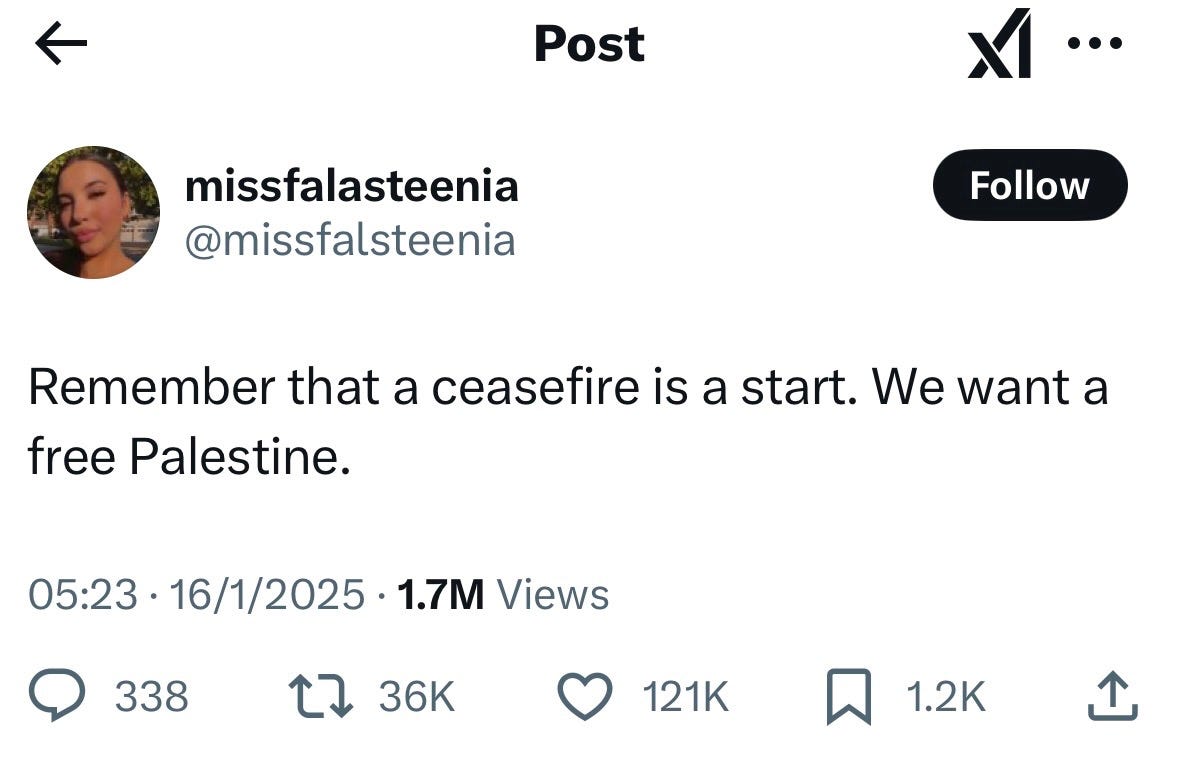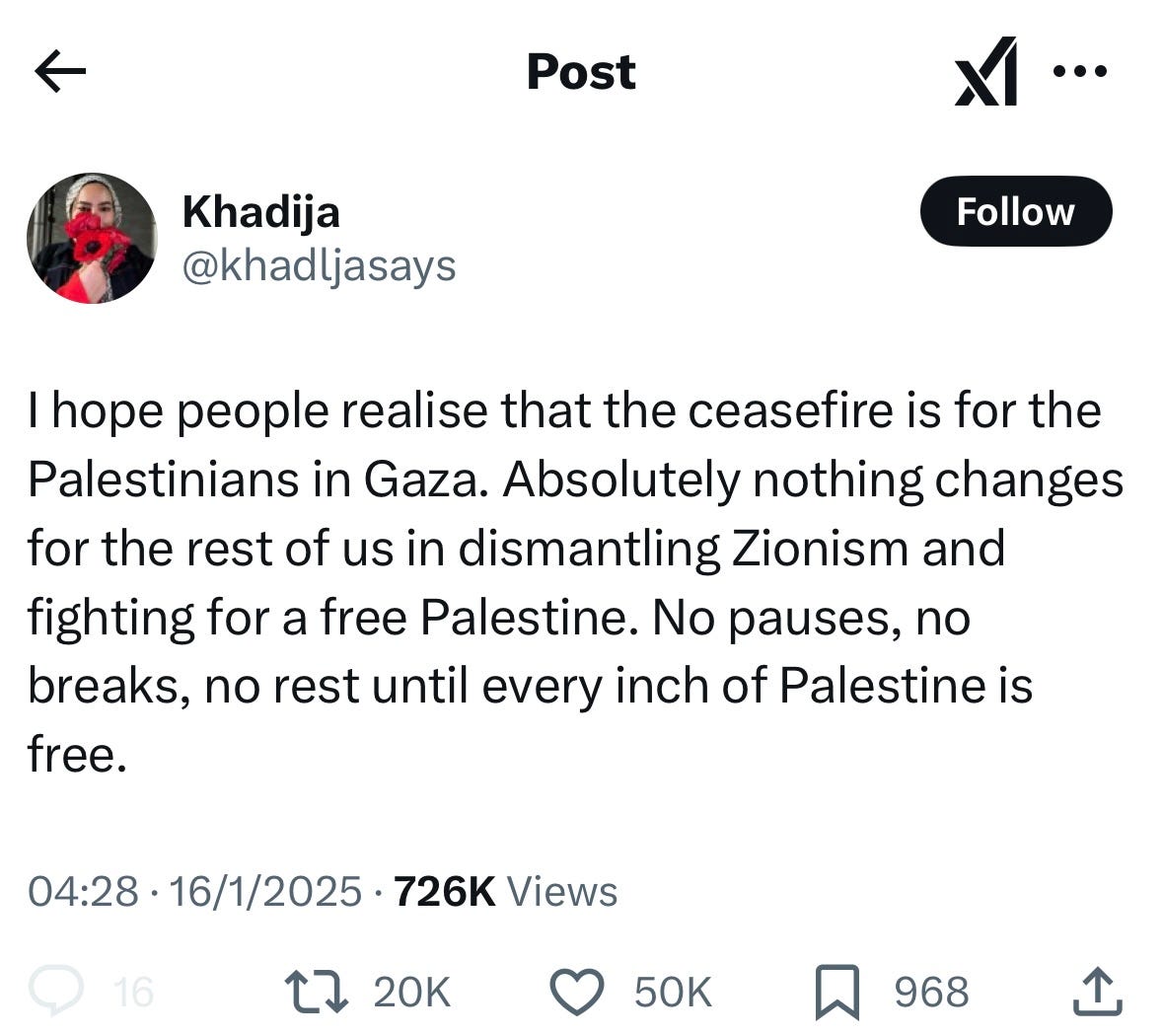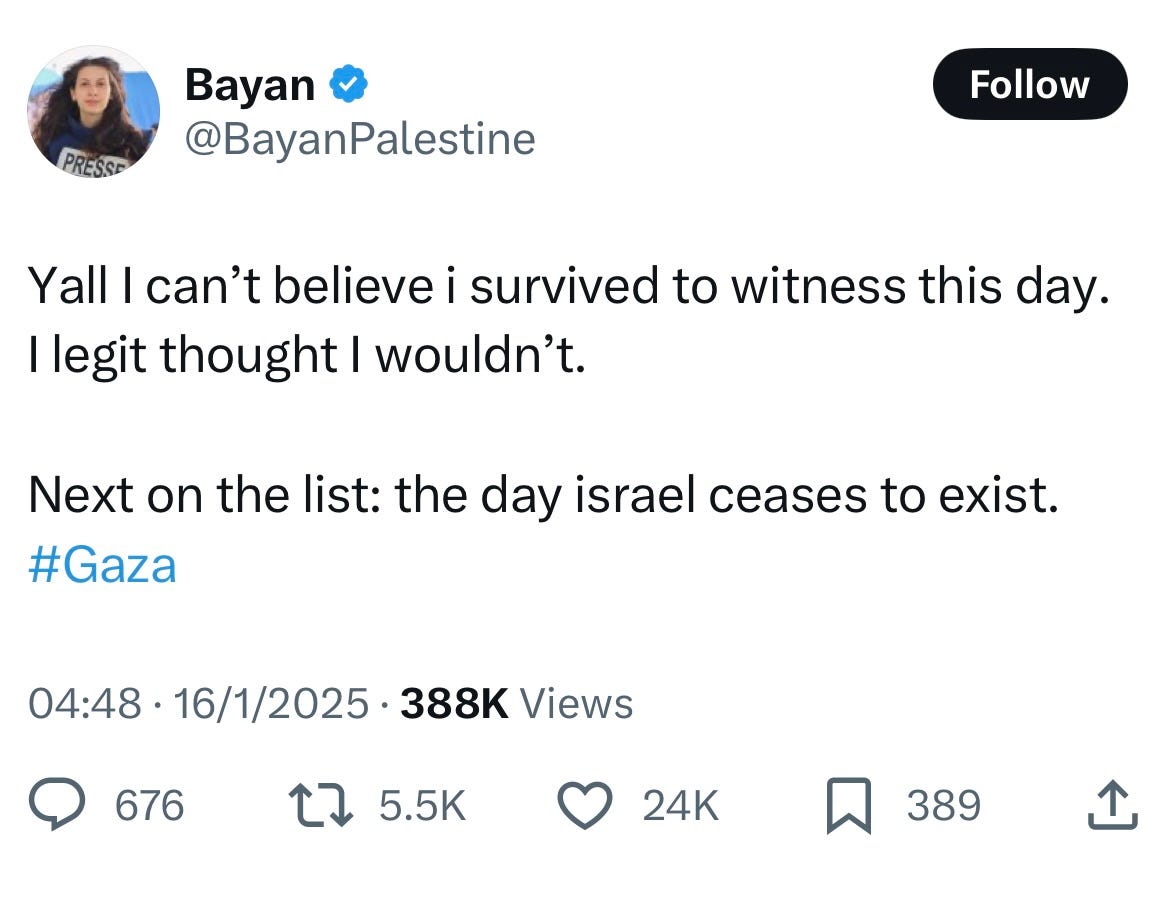The prism through which you view the Iranian/Hamas war on Israel is critically important. As a strategic matter of American or Israeli national security interests, we can have one view or another. But if your prism is a family member held by Hamas, or killed in Gaza, or a soldier’s family who fell in the war launched on October 7, 2023, you have special rights. For such families, and to a certain extent, for their elected representatives, there is almost no price too high for the restoration of loved ones and peace. Take a pause and imagine if it was your mum, your child, you dad, your husband, or your wife. It’s almost unimaginable. I would do anything.
Most of us are neither Israelis nor family members of Hamas’ victims, living and dead. And we are entitled to our view, and to criticize the players in the endless, grotesque kabuki between Hamas, the U.S. government, Qatar, and Israel. We too have serious interests at play that go beyond the release of hostages and the daily conflict.
Thus far, what we understand on the ceasefire agreement inked Wednesday is that some 33 plus hostages, perhaps not all alive – but almost certainly two live Americans – will be released by their terrorist captors. Israel will release some 1000 Palestinian prisoners in exchange, at least some of them killers. In addition, Israel will withdraw forces from some parts of Gaza in a ceasefire for 16 days in a first phase, though forces will remain in the critical area of the Philadelphi corridor.
Ceasefire advocates are naturally ecstatic. Donald Trump, who promised “hell” if hostages weren’t released, took credit. Joe Biden, who may or may not still be U.S. president, did the same. The presence of Trump’s Middle East emissary, Steve Witkoff, was courteous on Biden’s part, but odd. And his critical role in pressing Benjamin Netanyahu to take a flawed deal was even odder. We are meant to have one president at a time. Biden seems to have quit early.
Hamas’s friends in the pro-“Palestine” movement were thrilled.
Do these ghouls represent everyone who cares about the lives of Palestinians? Nope. But together with Hamas’ leaders, who vowed while on Qatari soil within hours of the agreement to commit another October 7, they represent a fair share of the “pro-Palestine” movement. Others hailed the agreement as a huge victory for Hamas, which Israel had vowed to eradicate.
Many Israelis condemned the agreement for its obvious flaws, and lambasted the incoming Trump administration for muscling Israel into a bad deal — one that looked very much like the deal Biden had offered in late spring. They noted that it allows a breath of air for Hamas to reconstitute, and does not eradicate Hamas from Gaza. It also contains a second phase which contemplates the return of yet more living hostages, and presumably a longer ceasefire or cessation of hostilities which can but favor Hamas.
Is it a bad deal? I think it is. Was there a better one in the offing? Perhaps not, at least not with the return of living hostages. Can Israel still eradicate Hamas? A better question is whether Israel could ever eradicate Hamas. You cannot beat something with nothing, and it remains unclear what the Israeli vision for post-Hamas governance of Gaza is. One can argue that post-Hamas Gaza is not Israel’s problem, and I have some sympathy with that case. But there are practical realities that dictate that as much as Israel would love to shed itself of Gaza for once and for all, it remains geographically difficult to ignore.
Are there more arguments for and against? Sure. Should Israel take this chance to finish off Iran? I’d love to see it. Will Trump support Israel in further weakening the regime in Tehran? I’d like to think so, but I am not certain. Will the deal even happen? As of this writing, the Israeli cabinet had postponed a vote due to Hamas's failure to agree to certain elements of the deal.
Finally, however, we are 15 months in to this war. And there isn’t much “we” here, but rather a lot of Israelis and Palestinians who are fighting. Israel has achieved incredible things — almost eliminating Hezbollah, finally seeing out Assad, crushing Iran’s hopes in the Levant, and more. And the Netanyahu government did it while under enormous pressure from the United States, pressure that would have limited Israel’s victories and saved Iran and its proxies. But it has come at a terrible cost, and it is hard to insist that Israel continue to bear that burden. One understands that a weary nation truly just wants to #bringthemhome.








Yes, a hard call. And I don't think we know the real why. I have a suspicion the missing funding from Iran was seen as "uh oh." We have no other option.
Very good analysis as always.